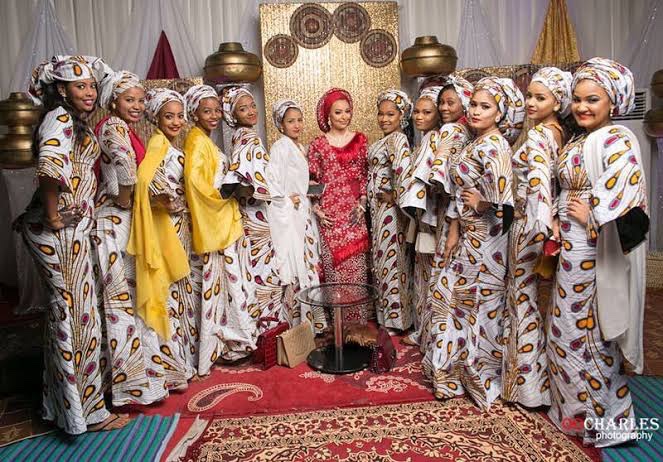
Shockwaves in Taraba as Muslim Council Bans All Wedding Parties in Jalingo

The city of Jalingo, the capital of Taraba State, has been thrown into heated debates and mixed reactions following the recent decision of the Muslim Council of Taraba to outlaw all forms of wedding parties within the metropolis. The announcement, which was delivered by the Chief Imam of Mayo Gwoi Jummat Mosque, Imam Tajudeen Nuhu, marks a drastic shift in social and cultural practices long associated with marriage festivities among Muslims in the region.
According to the statement issued during Friday’s Jummat sermons across all major mosques in Jalingo, the council made it clear that wedding-related gatherings such as Kauyawa (commonly referred to as villagers’ day) and Ajo parties—where youths dress in ragged outfits and dance until late into the night—are no longer permissible under Islamic guidelines in the city. Imam Tajudeen Nuhu, speaking on behalf of the council, emphasized that the decision was unanimously endorsed by Islamic clerics, traditional rulers, and other relevant religious authorities in the state.
“From now on, no household is permitted to hold Kauyawa parties, Ajo, or any form of wedding celebration in Jalingo,” the Imam declared. He further explained that the ban is not just an advisory statement but a binding directive with serious religious consequences for defaulters. In a stern warning, the council stated that any Muslim who disregards the order risks being denied key religious rites such as marriage contracts (Nikah), funeral prayers (Salat al-Janazah), Islamic marriage lectures, and even naming ceremonies in their homes.
The directive did not stop at punishing individuals who attempt to defy the order. Clerics themselves were also placed under strict instructions not to attend or preside over such prohibited gatherings. Any cleric who goes against this decision, the council warned, will face severe disciplinary measures that could include suspension or outright removal from office.
This move, according to the Muslim Council, is designed to restore order, discipline, and spiritual uprightness within the Muslim community in Jalingo, which in recent years has witnessed a steady rise in flamboyant and extravagant marriage parties. The council maintained that such gatherings often promote indecency, wastefulness, immorality, and distraction from the true essence of Islamic marriage.
The sermons delivered across Jummat mosques last Friday carried a unified message, reinforcing the need for Muslims to shun excessive social practices that undermine piety. The clerics insisted that marriage is a sacred covenant in Islam that must be approached with modesty and spirituality, not with music, dancing, and unrestrained celebrations that often spiral into acts considered un-Islamic.
However, the decision has since sparked heated discussions across Jalingo, with many residents expressing divergent views on the matter. Supporters of the ban argue that the Muslim Council is right to intervene in curbing social excesses that have become synonymous with wedding ceremonies in the city. They believe that the directive will promote discipline among the youth and redirect focus towards the spiritual significance of marriage rather than the ostentatious displays that dominate most wedding events today.
Some elders and parents in the community welcomed the ban, saying that many families have been subjected to financial burdens due to societal pressure to organize elaborate parties for their children’s weddings. “This decision will help reduce unnecessary expenses and ease the burden on parents who struggle to meet up with societal expectations,” one Jalingo resident commented, adding that the ban will also discourage reckless behavior among young people.
On the other hand, critics of the decision argue that the council has overstepped its boundaries by attempting to dictate social practices in a democratic setting. They insist that wedding parties are part of cultural expression and that outlawing them could spark resistance, particularly among the younger population who see such celebrations as a vital aspect of their social life. Some youths, reacting to the ban, described it as an infringement on their freedom to celebrate important milestones in their lives.
Observers have also noted that while the council’s intentions may be rooted in the desire to preserve religious values, enforcing such a directive may prove difficult, especially in a society where cultural practices are deeply intertwined with religion. Questions are already being raised as to whether families will fully comply with the new order or attempt to organize private gatherings away from the eyes of clerics and community leaders.
The timing of the announcement has further intensified the debate, as the wedding season in Jalingo is typically more active during the dry season, when families and communities organize large ceremonies. With this ban in place, many households who had already made preparations for elaborate parties may now be forced to revise their plans drastically, which could lead to frustration and confrontation with local authorities.
Interestingly, this is not the first time Islamic councils in Northern Nigeria have clamped down on what they consider to be un-Islamic practices in social life. In states such as Kano and Bauchi, similar bans have been imposed on events deemed extravagant or contrary to Islamic teachings. However, in Taraba, which is known for its religious diversity and cultural plurality, the decision is likely to stir more controversy and scrutiny.
Community leaders and stakeholders have begun appealing for calm, urging residents to respect the decision while also calling on the council to adopt a flexible approach in handling dissenting voices. Some have suggested that instead of an outright ban, the council could have introduced stricter guidelines to regulate wedding parties, ensuring that they are conducted modestly and within acceptable limits of Islamic tradition.
As it stands, the Muslim Council’s directive remains in full force, and residents of Jalingo are expected to comply immediately. Whether the community embraces or resists the ban in the long run remains to be seen, but one thing is certain: the announcement has reshaped conversations about religion, culture, and personal freedom in Taraba State.
The coming weeks will test the council’s ability to enforce its ruling, as families with pending wedding arrangements weigh their options and clerics brace themselves for potential backlash. For now, Jalingo’s social atmosphere has been thrown into uncertainty, with many wondering if the once-vibrant sounds of music, dancing, and merriment at weddings will indeed vanish under the weight of religious decree.


